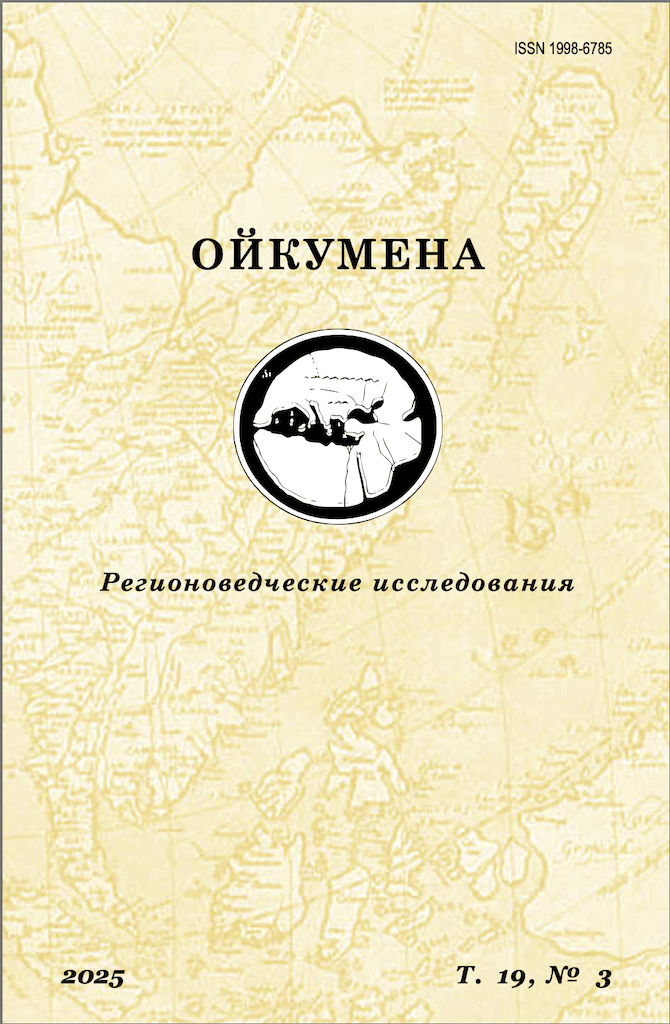employee
The authors examine the specifics of the use of artificial intelligence technologies by scientists in the context of scientific information retrieval. The paper focuses on the limitations of artificial intelligence in the search for scientific publications published in different regions and in different languages. The results of an experiment to search for scientific publications in three languages, in four artificial intelligence tools are presented. Recommendations useful for scientists both for finding publications using AI and ways to increase the visibility of their own works for AI services are formulated.
scientific literature search, scientific visibility, academic databases, scientific recognition, regional bias
1. Averkiev S. This is not a chat, this is GigaChat. Russian-language ChatGPT from Sberbank. URL: https://habr.com/ru/companies/sberbank/articles/730108/ (accessed 13.07.2025). (In Russ.).
2. Sokolov M. M., Guba K. S., Zimenkova T. S. How professors become professors: academic careers, markets and power in five countries. Moscow, Russia: Editorial office of the journal "New Literary Review," 2015. 832 p. (In Russ.).
3. Gurny M. The Great War of the Professors: humanities, 1912–1923. St. Petersburg, Russia: Publishing House of the European University, 2021. 414 p. (In Russ.).
4. Acut D. P. et al. "ChatGPT 4.0 Ghosted Us While Conducting Literature Search:" Modeling the Chatbot’s Generated No.n-Existent References Using Regression Analysis // Internet Reference Services Quarterly. 2025. Vol. 29. No. 1. P. 27–54. DOI: https://doi.org/10.1080/10875301.2024.2426793
5. Céspedes L. et al. Evaluating the linguistic coverage of OpenAlex: An assessment of metadata accuracy and completeness // Journal of the Association for Information Science and Technology. 2025. Vol. 76. No. 6. P. 884-895. DOI: https://doi.org/10.1002/asi.24979
6. DAIR.AI. Prompt Hub – Nextra. URL: https://www.promptingguide.ai/prompts (accessed 16.07.2025).
7. Dorsch I. Relative visibility of authors’ publications in different information services // Scientometrics. 2017. Vol. 112. No. 2. P. 917–925. DOI: https://doi.org/10.1007/s11192-017-2416-9; EDN: https://elibrary.ru/SERLHN
8. Fagan J. C. An evidence-based review of academic web search engines, 2014-2016: Implications for librarians’ practice and research agenda //Information Technology and Libraries. 2017. Vol. 36. No. 2. P. 7–47. DOI: https://doi.org/10.6017/ital.v36i2.9718
9. Grudniewicz A. et al. Predatory journals: no definition, no defence // Nature. 2019. Vol. 576. No. 7786. P. 210–212. DOI: https://doi.org/10.1038/d41586-019-03759-y
10. Gwon Y. N. et al. The use of generative AI for scientific literature searches for systematic reviews: ChatGPT and Microsoft Bing AI performance evaluation // JMIR Medical Informatics. 2024. Vol. 12. P. e51187. DOI: https://doi.org/10.2196/51187; EDN: https://elibrary.ru/HWYONM
11. Hangzhou DeepSeek Artificial Intelligence Co., Ltd. Model Mechanism and Training Methods of DeepSeek. URL: https://cdn.deepseek.com/policies/en-US/model-algorithm-disclosure.html (accessed 16.07.2025).
12. Helm P. et al. Diversity and language technology: how language modeling bias causes epistemic injustice // Ethics and Information Technology. 2024. Vol. 26. No. 1. P. 8. DOI: https://doi.org/10.1007/s10676-023-09742-6; EDN: https://elibrary.ru/KFBDKT
13. Latour B. Laboratory life: the social construction of scientific facts. Laboratory life / B. Latour, S. Woolgar. Beverly Hills: Sage Publications, 1979. 282 p.
14. Lieberum J. L. Large language models for conducting systematic reviews: on the rise, but not yet ready for use–a scoping review // Journal of Clinical Epidemiology. 2025. Vol. 181. 111746. DOI: https://doi.org/10.1016/j.jclinepi.2025.111746
15. McGowan A. et al. ChatGPT and Bard exhibit spontaneous citation fabrication during psychiatry literature search // Psychiatry Research. 2023. Vol. 326. 115334. DOI: https://doi.org/10.1016/j.psychres.2023.115334; EDN: https://elibrary.ru/QXDNHD
16. Merton R. K. Priorities in scientific discovery: A chapter in the sociology of science / R. K. Merton // American Sociological Review. 1957. Vol. 22. No. 6. P. 635–659. DOI: https://doi.org/10.2307/2089193
17. Merton R. K. The Matthew Effect in Science // Science. 1968. Vol. 159. No. 3810. P. 56–63. DOI: https://doi.org/10.1126/science.159.3810.56; EDN: https://elibrary.ru/IDENQP
18. Mistral AI. Does Mistral AI communicate on the training datasets? | Mistral AI – Help Center. URL: https://help.mistral.ai/en/articles/347390-does-mistral-ai-communicate-on-the-training-datasets (accessed 13.07.2025).
19. OpenAI. How ChatGPT and our foundation models are developed. URL: https://help.openai.com/en/articles/7842364-how-chatgpt-and-our-foundation-models-are-developed (accessed 13.07.2025).
20. Ortega J. L. To be or not to be on Twitter, and its relationship with the tweeting and citation of research papers / J. L. Ortega // Scientometrics. 2016. Vol. 109. No. 2. P. 1353–1364 DOI: https://doi.org/10.1007/s11192-016-2113-0; EDN: https://elibrary.ru/PWKPIG
21. Scherbakov D. et al. The emergence of large language models as tools in literature reviews: a large language model-assisted systematic review //Journal of the American Medical Informatics Association. 2025. Vol. 32. No. 6. P. 1071–1086. DOI: https://doi.org/10.1093/jamia/ocaf063
22. Shapiro S. Academic librarians, information overload, and the Tao of discovery // The Journal of Academic Librarianship. 2018. Vol. 44. No. 5. P. 671–673. DOI: https://doi.org/10.1016/j.acalib.2018.07.004
23. Wiley. ExplanAItions: an artificial intelligence study by Wiley. 2025. URL: https://www.wiley.com/en-in/ ai-study (accessed 14.07.2025).
24. Yang Y. et al. Unmasking and quantifying racial bias of large language models in medical report generation // Communications Medicine. 2024. Vol. 4. No. 1. P. 176. DOI: https://doi.org/10.1038/s43856-024-00601-z; EDN: https://elibrary.ru/ZKURJS
25. Yip R. et al. Artificial intelligence’s contribution to biomedical literature search: revolutionizing or complicating? // PLOS Digital Health. 2025. Vol. 4. No. 5. e0000849. DOI: https://doi.org/10.1371/journal.pdig.0000849











